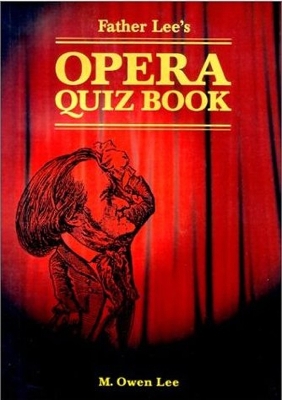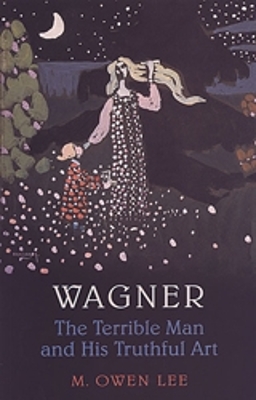Heritage
3 total works
How well do you think you know your opera? Match wits with Metropolitan Opera quiz master Father Owen Lee in forty-five opera-related puzzles, including straight-forward quizzes, anagrams, vertical patterns, crostics, and crossword puzzles. Each puzzle has a theme, such as baseball and opera, movies and opera, and operas set in Paris. Forty-three of the puzzles have been collected from Father Lee's column in The Opera Quarterly, along with two new puzzles especially created for this volume.
How is it possible for a seriously flawed human being to produce art that is good, true, and beautiful. Why is the art of Richard Wagner, a very imperfect man, important and even indispensable to us? In this volume, Father Owen Lee ventures an answer to those questions by way of a figure in Sophocles - the hero Philoctetes. Gifted by his god with a bow that would always shoot true to the mark, and indispensable to his fellow Greeks, he was marked by the same god with an odious wound that made him hateful and hated. Sophocles's powerful insight is that those blessed by the gods and indispensable to men are visited as well with great vulnerability and suffering. Wagner: The Terrible Man and His Truthful Art traces some of Wagner's extraordinary influence for good and ill on a century of art and politics - on Eliot and Proust as well as on Adolf Hitler - and discusses in detail Wagner's Tannhauser, the work in which the composer first dramatised the Faustian struggle of a creative artist in whom 'two souls dwell.' In the course of this penetrating study, Father Lee argues that Wagner's ambivalent art is indispensable to us, life-enhancing and ultimately healing.
How is it possible for a seriously flawed human being to produce art that is good, true, and beautiful? Why is the art of Richard Wagner, a very imperfect man, important and even indispensable to us? In this volume, Father Owen Lee ventures an answer to those questions by way of a figure in Sophocles - the hero Philoctetes. Gifted by his god with a bow that would always shoot true to the mark and indispensable to his fellow Greeks, he was marked by the same god with an odious wound that made him hateful and hated. Sophocles' powerful insight is that those blessed by the gods and indispensable to men are visited as well with great vulnerability and suffering. Wagner: The Terrible Man and His Truthful Art traces some of Wagner's extraordinary influence for good and ill on a century of art and politics - on Eliot and Proust as well as on Adolf Hitler - and discusses in detail Wagner's Tannhouser, the work in which the composer first dramatised the Faustian struggle of a creative artist in whom 'two souls dwell.' In the course of this penetrating study, Father Lee argues that Wagner's ambivalent art is indispensable to us, life-enhancing and ultimately healing.


